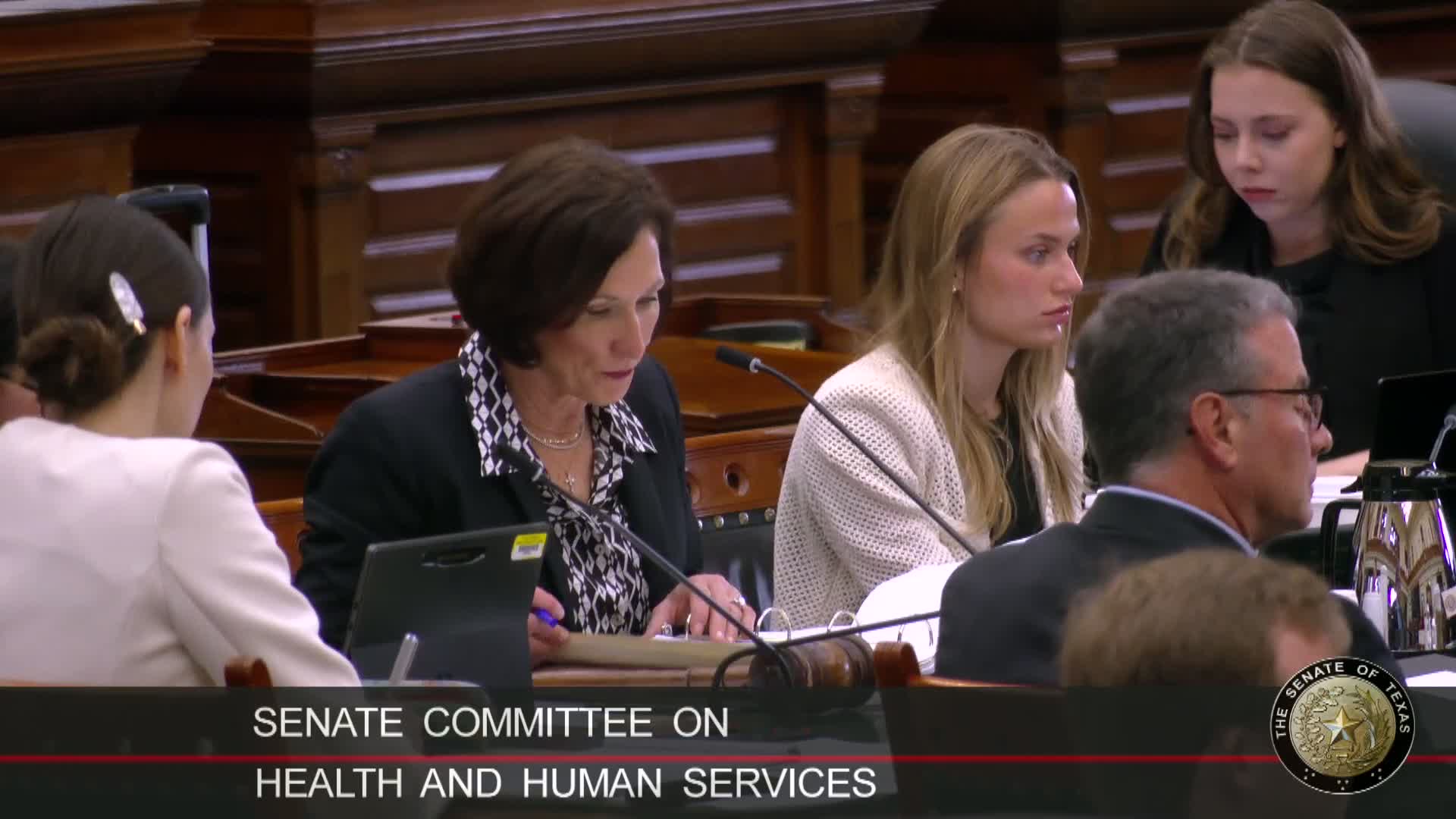Senate committee hears emotional testimony on bill to train providers and caseworkers on medical child abuse
Get AI-powered insights, summaries, and transcripts
Subscribe
Summary
Sen. Parker laid out Senate Bill 2826, “Alyssa’s Law,” to require training for health professionals and child protective services on medical child abuse; the hearing included testimony from survivors, law‑enforcement and many caregivers who warned the measure could harm families with medically complex children if not narrowly tailored.
Senate Bill 2826, filed by Sen. Parker and labeled “Alyssa’s Law,” drew extended, emotional testimony on the Senate Committee on Health & Human Services about how to detect and respond to medical child abuse. The bill would establish a statewide education program for medical students, health‑care professionals and DFPS caseworkers to improve recognition and response to cases in which caregivers deliberately fabricate or induce medical conditions in a child.
Sponsor’s presentation: Sen. Parker told the committee the measure aims to protect children from intentional medical abuse, to promote early identification and better coordination among providers and child protective services, and to avoid villainizing families who seek legitimate care. Sheriff Bill Weyburn and the text of a victim statement from Alyssa Weyburn — the girl whose case inspired the bill — appeared in the hearing record.
Divided testimony: The hearing brought sharply divided views. Supporters described the bill as a targeted education program needed to catch rare but severe cases. Sheriff Weyburn and witness Bill Weyburn recounted Alyssa’s childhood medical history as part of the case for training. Sen. Parker said the training “will properly educate providers on what to look for in medical abuse cases.”
Concerns from clinicians and family advocates: Several witnesses, including Terri Carriger (Protect Texas Fragile Kids), retired judge Mike Schneider, advocacy organizations and parents of medically complex children, opposed the bill as written or urged major revisions. They warned the bill risked creating a broad presumption of abuse against families who legitimately seek specialty care or frequent consultations and could result in erroneous investigations, lost care, and lasting damage to medical records. “This bill in its current form could have devastating unintended consequences for innocent families like mine,” parent Rebecca Galinski said, noting that rare disease patients often require lengthy referrals and repeated specialty visits.
Committee discussion: Committee members probed narrow and practical options. Several senators said the problem is real but rare, and that training could be a first step while protecting medically fragile families. Sen. Hancock and others urged statutory safeguards and stronger data collection or retroactive review by the Texas Medical Board for suspected systemic failures. Sen. Parker and supporters emphasized starting with an education program before moving to tougher enforcement options.
Outcome: The committee received invited and public testimony and left the bill pending. Senators and witnesses urged further work to narrow scope, require peer‑reviewed curricula, add procedural protections for medically fragile children and ensure that any training is developed with input from forensic mental‑health professionals, rare‑disease experts and family advocates.
Context: Witnesses described a mix of case histories and legal experiences, including alleged “doctor‑shopping” and fraud, but also many cases where parents sought second opinions for undiagnosed complex conditions. Several speakers asked for precise statutory language to exclude medically fragile children or to require independent review and evidence‑based curricula before expanding mandatory training programs.
